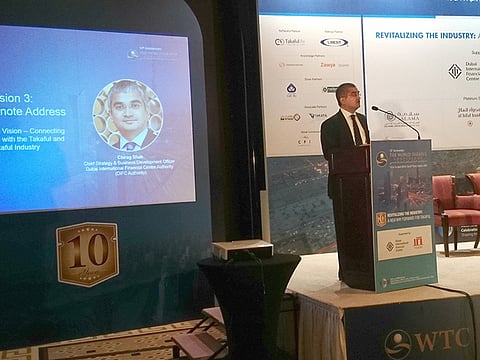Global Takaful premium to reach $20 billion by 2017
Most Middle East markets, except Saudi Arabia lag in premium growth

Dubai: The significant premium growth in the global takaful [Islamic insurance] sector is expected to continue and reach $20 billion by 2017, with the majority of that increase coming from Malaysia and Saudi Arabia, according to A M Best, a US-based rating agency specialised in financial data products and services for the insurance industry said on Monday.
Coinciding with the World Takaful Conference in Dubai, A M Best said in a report that despite the rapid growth of takaful on a global basis, it has struggled to take hold in Middle East markets, other than Saudi Arabia, which are considered to be concentrated with a few large players dominating their respective markets.
In the context of global insurance markets, overall premium volumes in many Middle East countries remain small (below $2 billion). This is in part due to immature insurance sector where penetration rates are seen lowest among the emerging market countries due to low population size in Gulf countries and relatively small economies such as Jordan and Lebanon.
The smaller scale of many takaful operators results in high costs bases and expenses ratios that dampen operating performance. For example, takaful companies had a weighted average expense ratio of 30 per cent in 2013, compared with 20 per cent for the UAE’s conventional insurance market.
“Given the huge global Muslim population, significant opportunities exist for takaful operators to provide sound financial protection in line with the consumers’ religious sensibilities,” said Michael Dunckley, financial analyst.
Despite these opportunities a number of challenges remain, including market conditions that leave takaful operators subject to fierce pricing competition from more established insurers that benefit from brand awareness and more established distribution networks. Other challenges involve achieving growth without compromising on profitability, developing a niche market position and a loyal customer base.
Takaful operators are differentiated from conventional insurers by the opportunity for policyholders to share in the underwriting profit. While shareholders require dividends to justify their capital investment, takaful policyholders also maintain the right to share in the surplus that accrues from good management of a takaful fund. Striking a proper balance of earnings is important to improving mutuality, as well as policyholder protection.
About 400 key players and stake holders in the takaful industry are participating in the World Takaful Conference in Dubai. The industry, is facing a number of challenges like any other growing industry, said Ehsan Abbas, chairman of the WTC.
The global takaful industry grew 16 per cent in 2012, a noticeable moderation from a 22 per cent compounded annual growth rate (CAGR) over 2007-2011, according to a recent report by Ernst & Young study (EY).
“The key challenges that the global takaful industry face are intense competition, depreciating profit margins, operating efficiency and scalability. For the industry to achieve its goal of long term stability, it is imperative to find pioneering solutions to cope with these challenges,” said Abdullah Mohammad Al Awar, CEO of Dubai Islamic Economy Development Centre.
Takaful in most markets is still in its infancy, and its potential to replace conventional insurance in leading Islamic finance markets is still largely untapped. Currently, Saudi Arabia, the UAE and Malaysia lead the industry with their relatively well-developed Islamic insurance market. The role of authorities in simplifying regulatory frameworks across borders and encouraging consolidation will also be key to propelling the industry’s expansion.



